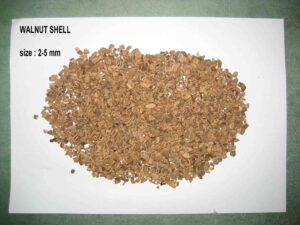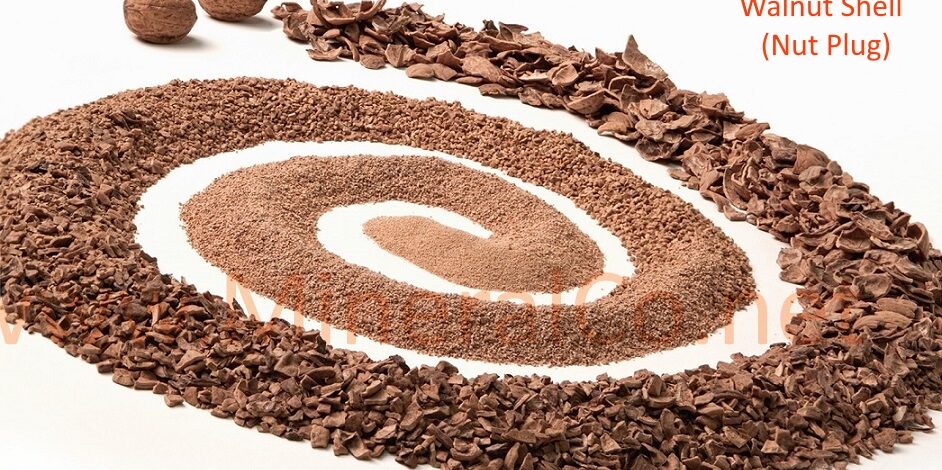A Complete Guide
What is a Walnut Shell?
Walnut shells are a byproduct of walnut processing and are highly valued for their versatility in industries like blasting, polishing, filtration, and cosmetics. These eco-friendly shells are used as abrasives for cleaning surfaces, in water filtration systems, and as a natural exfoliant in beauty products. If you’re planning to import walnut shells, understanding the steps and requirements is crucial for a smooth import process.

Why Import Walnut Shells?
Rising Demand Across Various Industries
Walnut shells are increasingly in demand due to their sustainable and non-toxic properties. They are widely used in industries such as aerospace, automotive, and water treatment, as well as in cosmetics. Their biodegradable nature makes them an attractive alternative to synthetic materials, providing eco-friendly solutions for several applications. Importing walnut shells can be a profitable venture if you cater to industries that prioritize sustainability.
https://iranmineral.net/walnut-shells-for-dental-products/
How to Import Walnut Shell: Step-by-Step Process
1. Find Reputable Walnut Shell Suppliers
The first step in importing walnut shells is to find reliable suppliers. Major producers include the United States, China, and Turkey, where walnut production is abundant. It’s essential to choose suppliers who provide high-quality walnut shells tailored to your industry needs.
Key Factors to Consider When Choosing a Supplier:
- Product Quality: Ensure that the walnut shells meet the required specifications for your intended use, whether for blasting, filtration, or cosmetic purposes.
- Supplier Reputation: Work with suppliers that have a strong track record in delivering high-quality walnut shells consistently.
- Certifications: Check if the supplier follows industry standards for quality and environmental sustainability.
2. Understand Import Regulations
Different countries have specific regulations regarding the import of agricultural products like walnut shells. Ensure you comply with all legal requirements to avoid delays at customs or penalties.
Key Documentation Includes:
- Import License: Some countries require an import license for agricultural byproducts like walnut shells.
- Customs Declaration: Use the correct HS code for walnut shells (HS code 1404) to avoid classification errors at customs.
- Bill of Lading: This document provides proof of shipment and is necessary for customs clearance.
- Commercial Invoice: This details the shipment’s value and is required for calculating duties and taxes.
3. Calculate Import Duties and Taxes
Import duties and taxes will vary based on the country of origin and the trade agreements in place. It’s essential to understand these costs before importing walnut shells to calculate your final expenses accurately.
How to Minimize Costs:
- Research Trade Agreements: Some countries may have free trade agreements (FTAs) that reduce or eliminate import tariffs on walnut shells.
- Harmonized Tariff Schedule (HTS): Check the HTS code for walnut shells to determine applicable tariffs and import duties.
4. Arrange Shipping and Logistics
Efficient logistics management is key when importing walnut shells, especially for large quantities. Most walnut shells are shipped in bulk or in large bags, depending on your order size.
Shipping Considerations:
- Freight Forwarder: Hire a reputable freight forwarder experienced in handling bulk agricultural imports.
- Packaging: Walnut shells are typically shipped in large containers or bulk bags to ensure safe transport.
- Insurance: Secure cargo insurance to protect your shipment from potential damage or loss during transit.
Tips for a Successful Walnut Shell Import Process
1. Monitor Global Market Trends
The price of walnut shells can fluctuate due to changes in agricultural production and demand. Staying informed about global market trends will help you time your purchases strategically to get the best prices.
2. Build Strong Supplier Relationships
Establishing long-term relationships with reliable suppliers ensures consistent quality and timely delivery of walnut shells. Regular communication with your supplier can also help secure better pricing and favorable terms for future imports.
3. Ensure Compliance with Environmental and Safety Standards
Walnut shells, as an agricultural product, may be subject to specific environmental regulations. Ensure that your suppliers comply with environmental safety standards and that you meet your country’s import regulations for agricultural materials.

